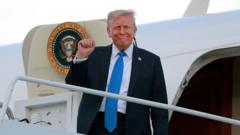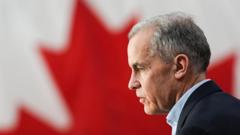The Canadian government is questioning the validity of shocking sales claims made by four Tesla-owned dealerships that purportedly sold 8,653 vehicles over a single weekend in January.
Tesla's Controversial Sales Claims Face Government Scrutiny in Canada

Tesla's Controversial Sales Claims Face Government Scrutiny in Canada
Four Tesla dealerships reported outsized sales figures to secure millions in government incentives, but these numbers are now being thoroughly investigated.
By Ian Austen Reporting from Ottawa, March 27, 2025 — Tesla's sales have taken a hit in many regions, including Canada, largely attributed to public backlash against Elon Musk's controversial political affiliations and comments regarding Canadian sovereignty. However, in a puzzling twist, four Tesla-owned dealerships announced they sold an extraordinary 8,653 cars during just one weekend in January, just in time to qualify for nearly CAD 43 million (around USD 30 million) in government rebates.
This revelation raised eyebrows, prompting the Canadian government to ask how the electric vehicle manufacturer managed such an impressive feat, as it implies that the dealers would need to have sold two cars every minute continuously over the duration of three days—from January 10 to January 12.
Following these claims, the government has put a hold on subsidy payments as Prime Minister Mark Carney has instigated an investigation into the legitimacy of the sales figures. Transport Minister Chrystia Freeland emphasized that any payments would remain frozen until thorough verification of the claims is completed. She also linked the situation to broader trade tensions, stating that Tesla wouldn’t be eligible for any future rebate programs while U.S. tariffs against Canada are in effect.
The apparent windfall for Tesla has resulted in significant losses for its competitors, particularly within the Canadian Automobile Dealers Association, which reported that around 225 dealerships that sell various brands have been deprived of nearly CAD 10 million in potential rebates, placing some at severe financial risk. The government’s decision to expedite subsidy checks significantly affected the overall budget of the rebate program, which was set to expire on March 31, forcing an early closure.





















